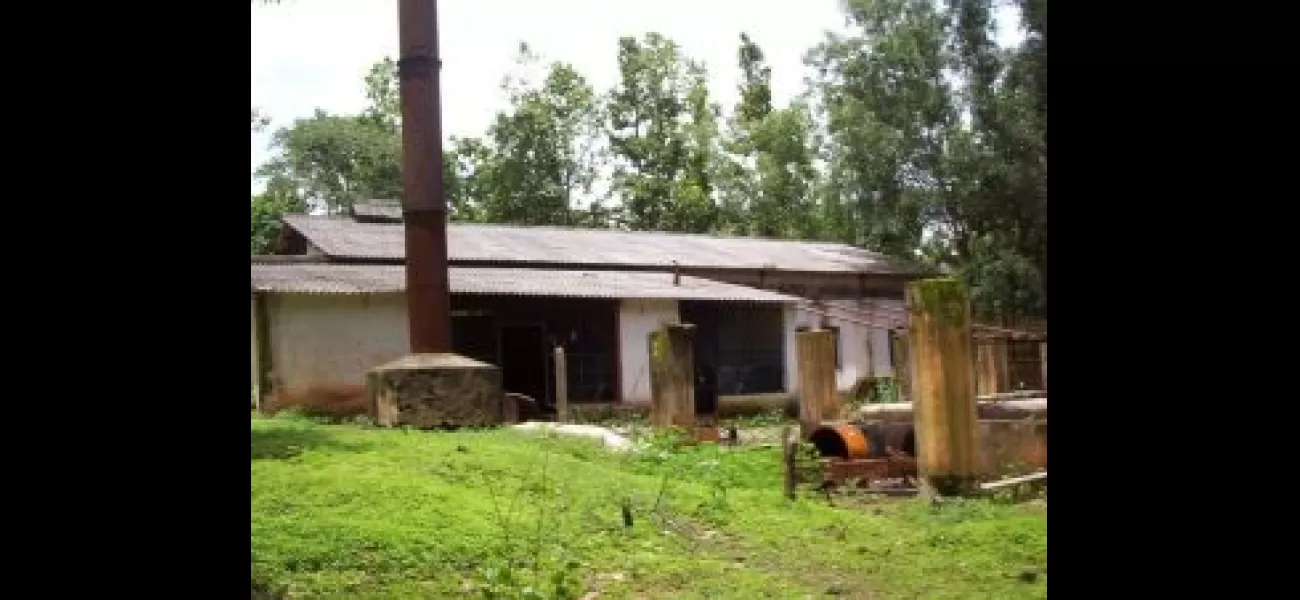Keonjhar tea garden is unlikely to be revived.
Keonjhar's Taramakanta tea garden used to be well-known nationally and internationally, but it has been closed for almost 20 years, much to the dismay of local residents who blame the government.
May 16th 2024.

The Taramakanta tea garden, located in the district of Keonjhar, was once renowned not only in the state of Odisha but throughout the entire country and even beyond its borders. It was a source of pride for the locals and a symbol of excellence in the tea industry. However, for nearly two decades now, it has been closed down, much to the dismay of the residents living in its vicinity.
Many believe that the state government is responsible for the garden's closure. In fact, a few months ago, the people of Banspal block, led by their chairperson Manas Dehuri, along with all the sarpanchs and samiti members, had submitted a memorandum to the 5T chairman Kartik Pandian, urging for the garden to be reopened. Unfortunately, despite their efforts, no steps have been taken so far to revive the once-thriving tea garden. According to Ajit Kumar Nayak, a member of the Taramakanta panchayat samiti, the chances of the garden being reopened seem quite slim at the moment.
Interestingly, the Taramakanta tea garden was the only one in the entire state and was managed by the Odisha Tea Plantation Ltd. Its tea leaves were highly sought-after for their superior quality and were not only sold in different parts of India but also exported to countries like Japan, France, Germany, Great Britain, USA, Russia, and Canada. The garden, which was established in 1982 through a joint venture between the state-run Industrial Promotion and Investment Corporation of Odisha Ltd and industrialist Basant Kumar Dubey, was set up on a vast 896.54 hectares of land. The company had taken a loan of Rs 2.24 crore from the United Bank of India for this project. As it was a collaboration between the government and Dubey, it was named Odisha Tea Plantation Ltd.
In no time, the garden gained recognition and became synonymous with high-quality tea. It began its operations in 1983 and was flourishing in its business until 2002. The garden was not only beneficial for the company and the state's economy, but it also provided employment opportunities for the members of the Bhuyan and Juang communities. Many of them were working in the garden and earning a decent livelihood. The garden had been profitable since its inception.
However, in 2003, the garden faced a downturn. The demand for tea leaves from the garden started to decline, and as a result, its production also decreased. Many employees and laborers left in search of better opportunities elsewhere. Eventually, in 2004, the garden had to shut down completely. Sadly, even after all these years, several members of the tribal Juang and Bhuyan communities who had worked in the garden are still waiting to receive their dues. The locals firmly believe that if the state government takes the initiative to reopen the garden and run it professionally, it could still be a profitable venture. However, until then, the once-bustling tea garden remains abandoned and neglected, giving off a ghostly vibe.
Many believe that the state government is responsible for the garden's closure. In fact, a few months ago, the people of Banspal block, led by their chairperson Manas Dehuri, along with all the sarpanchs and samiti members, had submitted a memorandum to the 5T chairman Kartik Pandian, urging for the garden to be reopened. Unfortunately, despite their efforts, no steps have been taken so far to revive the once-thriving tea garden. According to Ajit Kumar Nayak, a member of the Taramakanta panchayat samiti, the chances of the garden being reopened seem quite slim at the moment.
Interestingly, the Taramakanta tea garden was the only one in the entire state and was managed by the Odisha Tea Plantation Ltd. Its tea leaves were highly sought-after for their superior quality and were not only sold in different parts of India but also exported to countries like Japan, France, Germany, Great Britain, USA, Russia, and Canada. The garden, which was established in 1982 through a joint venture between the state-run Industrial Promotion and Investment Corporation of Odisha Ltd and industrialist Basant Kumar Dubey, was set up on a vast 896.54 hectares of land. The company had taken a loan of Rs 2.24 crore from the United Bank of India for this project. As it was a collaboration between the government and Dubey, it was named Odisha Tea Plantation Ltd.
In no time, the garden gained recognition and became synonymous with high-quality tea. It began its operations in 1983 and was flourishing in its business until 2002. The garden was not only beneficial for the company and the state's economy, but it also provided employment opportunities for the members of the Bhuyan and Juang communities. Many of them were working in the garden and earning a decent livelihood. The garden had been profitable since its inception.
However, in 2003, the garden faced a downturn. The demand for tea leaves from the garden started to decline, and as a result, its production also decreased. Many employees and laborers left in search of better opportunities elsewhere. Eventually, in 2004, the garden had to shut down completely. Sadly, even after all these years, several members of the tribal Juang and Bhuyan communities who had worked in the garden are still waiting to receive their dues. The locals firmly believe that if the state government takes the initiative to reopen the garden and run it professionally, it could still be a profitable venture. However, until then, the once-bustling tea garden remains abandoned and neglected, giving off a ghostly vibe.
[This article has been trending online recently and has been generated with AI. Your feed is customized.]
[Generative AI is experimental.]
0
0
Submit Comment





